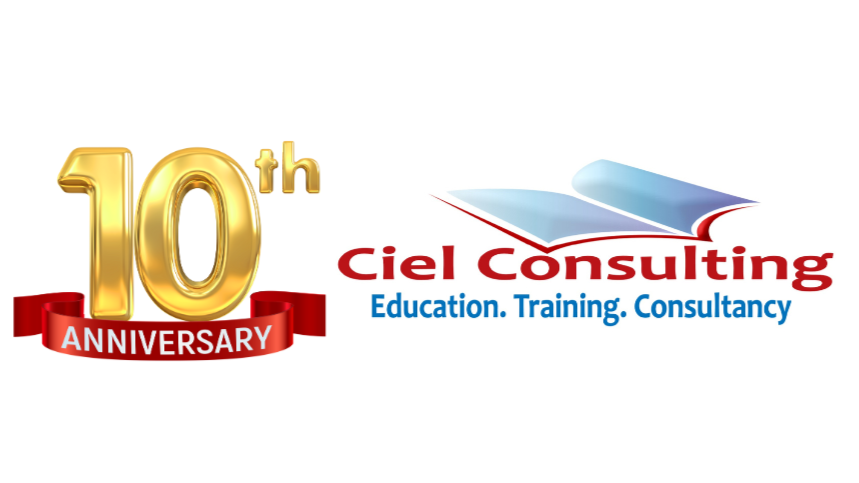What is the difference between PMBOK 6 and PMBOK 5
After every four to five years, the Project Management Institute (PMI®) updates the PMBOK® Guide. On September 6th, 2017, PMI published their sixth Edition which is in ten translations. Different from the previous editions, the PMBOK® Guide –Sixth Edition contains numerous references to adaptive and iterative practices, including agile, a decision that was made in response to the requests of PMIs stakeholders.
The following are some of the notable changes that have been made in the 6th Edition:
CHAPTER RE-ALIGNMENT
The information in Chapter 1 to 3 has been completely rewritten to highlight importance of project management’s role in the business value creation and any organizational change. In the new edition, the role of the project manager has been expanded as a leader, business expert and strategic thinker.
AGILE ADDITION
The Agile concept is incorporated in all 10 knowledge areas. Each knowledge area will contain a section entitled Approaches for Agile, Iterative and Adaptive Environments, describing how these practices integrate in project settings.
PROCESSES; PROCESS GROUPS AND KNOWLEDGE AREAS
PMI’s project framework will still contain 5 process groups and 10 knowledge areas but will embrace 49 processes, expanded from the current 47. Additionally, two of the current Knowledge Areas have been renamed. Project Time Management is now Project Schedule Management while Project Human Resource Management is now Project Resource Management.
| PMBOK 5th Edition | PMBOK 6th Edition |
|---|---|
| Human Resource Management | Resource Management |
| Time Management | Schedule Management |
| PMBOK 5th Edition | PMBOK 6th Edition |
|---|---|
| Manage Project Knowledge | |
| Implement Risk Responses | |
| Close Procurements | Control Resources |
CHANGE OF NAME OR MOVING OF PROCESSES.
| PMBOK 5th Edition | PMBOK 6th Edition |
|---|---|
| Perform Quality Assurance | Manage Quality |
| Plan Human Resource Management | Plan Resource Management |
| Control Communications | Monitor Communications |
| Control Risks | Monitor Risks |
| Plan Stakeholder Management | Plan Stakeholder Engagement |
| Control Stakeholder Engagement | Monitor Stakeholder Engagement |
PMI TALENT TRIANGLE
The PMBOK® Guide –Sixth Edition will contain a new chapter on the role of the project manager which discusses the PMI Talent Triangle™ and the skill sets organizations demand that make project managers more competitive and relevant—technical project management, leadership, and strategic and business management.
OTHER NOTABLE CHANGES
All the 10 knowledge areas are focusing on new topics like Key Concepts, Approaches in Agile, Tailoring Considerations, Trends and Emerging Practices, Iterative and Adaptive Environments and so on.
We have various notations throughout the new PMBOK® Guide differentiating between processes which are “Ongoing” (continuously executing) vs. “Non-ongoing processes.” This concept is emphasized for the first time in the new PMBOK® Guide Sixth Edition.
The Project Scope vs Product Scope concept has been emphasized for the first time in new PMBOK® Guide 6th Edition.
There is a distinction between “Communication” (as in communicating between two people) and “Communications” (artifacts, such as published emails).
The new strategy, “Escalate Responses” provides for a PM escalating a risk to the appropriate party so that the risk is no longer his/her responsibility.
WHY YOU NEED TO TAKE YOUR CERTIFICATION EXAM NOW.
The PMP Exam is expected to be updated to the new PMBOK® Guide material sometime around the 1st Quarter of 2018. If you have the 35hrs of training and you are yet to sit the exams, it is recommended that you get Certified before the official launch of the New exam for the following reasons.
The changes to terminology in the Sixth Edition will be made to the PMP® exam to align the two and remove discrepancies.
The number of processes has gone up from 47 to 49. While this does not predict a difficult exam, it simply means you will have to cover the additional content before you sit for your exams.
There are three new processes. Meaning, there will be at least 5-10% of new content to acknowledge in your PMP exam preparation.
There is Agile and Scrum related content strewn all over the PMBOK®Guide 6TH Edition and a brand-new Appendix to expand its coverage. There is a good chance that PMI will borrow content from the PMI-ACP exam and incorporate it into the PMP certification test.
Additionally, there are several other miscellaneous changes that will affect the exam in small and possibly big ways.
However, the good news is that Ciel Consulting organises a five-day Training that will help you get certified before the new exams are launched. The training is designed to help you clear your exams in one sitting. It is also designed for experienced project managers who have attended a PMP® Training course in the past but were not able to sit for the exam and feel they need a refresher course to bring them back ‘up to speed’ and prepare them to sit for the current exam.
To book your seat, call us on +234 9037080552.

